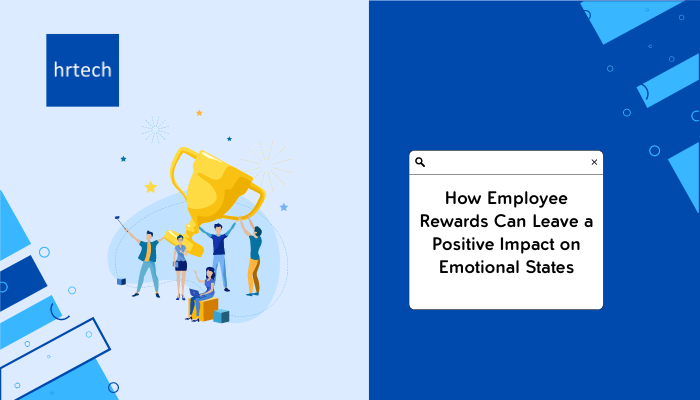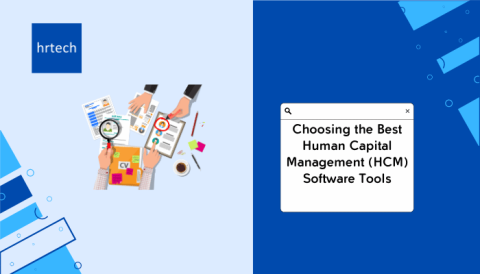Most businesses that have been around for a while are familiar with employee rewards. Whether incentivizing employees for their job candidate referrals or rewarding them for achieving specific milestones, rewards can be a great way to show employees appreciation for going above and beyond.
However, while the monetary value of a reward brings a certain amount of value to employees, businesses might be surprised about the more subtle yet even more powerful impact it can have on their emotional state.
Common Reasons Why Employers Reward Their Employees
Employee rewards can come in all different types of formats. What is considered an important point of incentivization can vary considerably from one business to the next.
However, while all companies are different, most decide to implement rewards for some of these common reasons:
Recognizing Achievements
All businesses have milestones they put in place to help them reach their short- and long-term objectives. However, getting to this point requires employees who actively work toward helping the business achieve them.
Rewards are a common way businesses show their appreciation to employees for hitting their goals. While some of these goals might be passive —for example, being with the company for a certain amount of years — others can be much more focused.
If an employee works hard at completing a complex project ahead of the deadline, companies may want to reward their efforts above and beyond what they’re already compensated for.
Motivation to Perform
While all employees are already compensated with a paycheck to do their jobs, it’s beneficial to offer them additional incentives to perform at a high level.
Rewards are a great way for employers to boost employee motivation to take on more responsibilities as they develop. These incentives can vary from employee to employee, but ultimately the goal is to get them focused on giving a little bit of extra “push” during their day-to-day activities.
While recognizing goals supports individual achievements, introducing physical rewards like awards for outstanding employees can enhance the perception of value in their contributions. Custom employee plaques emphasize personalization, acknowledging unique accomplishments, which bolsters positive emotional states and a sense of belonging. Physical tokens of appreciation serve as constant reminders of success, motivating continued excellence.
This is the same type of incentive a sales employee has when eyeing up their monthly commissions and is often a great way to help employees visualize a target to hit, rather than just going through the motions every day.
Improving Company Culture
Businesses that want to promote a healthier company culture will often want to prioritize their employees’ happiness. One way to do this is by giving tangible rewards to their hard work.
Reward programs give employees something to look forward to when going to work and help them feel like their employers care about the effort they’re putting in.
These reward systems also help attract new job candidates when hiring for new positions, helping the business minimize the time they need to spend on recruitment and reducing staff turnover.
Encouraging Employee Loyalty
When employees feel appreciated, it often translates to better staff retention. Reward programs can have a great positive impact and show employees that they’re not just another number in the machine.
While the reward value can be great, the real value often comes from showing employees that the business is willing to invest in its people. This can make a major difference when establishing company loyalty with employees and reduce their need to find employment elsewhere.
The Emotional Impact of Employee Rewards Beyond Their Monetary Value
Employee rewards can be a great way to increase motivation in your workforce. However, what many businesses may not realize is that the monetary value of a reward isn’t as impactful as the emotional component associated with it.
This isn’t to say that employees don’t enjoy receiving a gift card or additional incentive pay. Rather, they can evoke powerful emotions that can benefit the business and its employees long-term.
Feelings of Appreciation and Validation
It doesn’t matter whether a reward is large or small— the gesture itself can help employees feel fully appreciated by the organization they work for while helping validate the hard work they’ve put in.
When your efforts feel validated, you naturally want to continue on that same path. If a company doesn’t take the time to show its employees that their contributions are useful and appreciated, there is a good chance motivation will decrease— and employees’ sense of purpose will be lost.
Instills a Sense of Belonging
Everyone wants to enjoy what they do for work. A big part of this is having a sense of belonging with your employer.
Regular recognition of a job well done helps employees feel heard and valued where they work. It makes employees feel like they’re there for more than just a paycheck and want to contribute toward something bigger than themselves.
Positive Reinforcement and Long-Term Happiness
There is a reason why positive and negative reinforcement are important points of consideration in human psychology. Our braids are wired to respond positively to hearing kind words given to us, or when receiving rewards for our efforts.
When we receive something in return for our efforts, it releases dopamine in our brains, which stimulates positive feelings of well-being that can quickly translate to higher job satisfaction.
Reduced Stress and Burnout
An employee’s mental health is such an important part of their happiness and how much they’ll be able to perform for their company Experiencing excessive stress or burnout can quickly lead to mental health decline and can start to disconnect someone from what they’re working on.
However, when employees feel like they’re regularly appreciated by the organization they work for, it helps to reinforce more positive feelings about the work they’re putting in. Often, employees can be hard on themselves — and feel like they’re not achieving enough day-to-day.
Reward systems help to provide tangible evidence to them that what they’re putting in is appreciated and help them prevent the emotional exhaustion that can come from feeling overworked and undervalued.
Show Your Employees They’re Valued
While employee rewards may positively impact an employee’s work ethic, they also significantly improve their emotional states in the long term. By placing more value on rewarding your employees, you can produce a positive company culture that leads to employees feeling more physically and emotionally engaged with the organization.
Author Information
Author Name: Cindy Mielke
Author bio: Cindy Mielke is Tango Card‘s Vice President, Strategic Partnerships, and a Certified Professional of Incentive Management. Her passion is helping teammates, clients, and partners achieve success. A strong advocate for the incentive industry, Cindy received the Karen Renk Award and the Lifetime Achievement Award from the Incentive Marketing Association (IMA) in 2019. She currently serves on the IMA board of directors and on the board of the Incentive and Engagement Solutions Providers (IESP).





